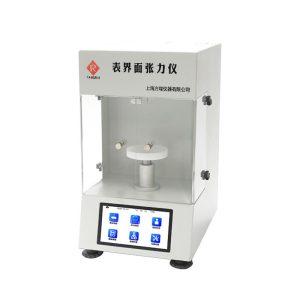معامل اللزوجة والتوتر السطحي
يعد معامل اللزوجة والتوتر السطحي معلمتين مهمتين لخصائص السائل, which describe the behavior and characteristics of liquid under different conditions.
معامل اللزوجة والتوتر السطحي
Viscosity coefficient: Viscosity coefficient is a physical quantity that describes the viscosity resistance inside a liquid and measures the viscosity or fluidity of a liquid. The higher the coefficient of viscosity, the thicker the liquid, and the more difficult it is to flow. The coefficient of viscosity is usually expressed as the ratio of force per unit area to velocity difference per unit time (معدل القص). الوحدات عادة ما تكون ثانية باسكال (باس) أو مليبا ثانية (ميلي باسكال · ثانية). High viscosity liquids (على سبيل المثال, الغروانية, معجون) have larger viscosity coefficients, while low viscosity liquids (على سبيل المثال, ماء, alcohol) have smaller viscosity coefficients.
التوتر السطحي: Surface tension is the property of the liquid surface to contract due to the intermolecular interaction occurring on the liquid surface. Surface tension causes the liquid surface to show as little surface area as possible, forming an elastic film against the outside world. Surface tension has an important effect on the stability of liquid surface and the shape of droplet. Surface tension is usually expressed as a force per unit length, in Newtons per meter (ن / م) or Dyne per centimeter (dyn/cm).

There is no direct mathematical relationship between viscosity coefficient and surface tension. They are different aspects of describing the properties of a liquid. لكن, they are all affected by the interactions between liquid molecules. على سبيل المثال, liquids with strong intermolecular attraction usually have higher viscosity and higher surface tension. لكن, the composition of the liquid, درجة حرارة, ضغط, and other conditions can affect the viscosity coefficient and surface tension, so specific values and trends need to be determined based on the specific liquid system and conditions.
